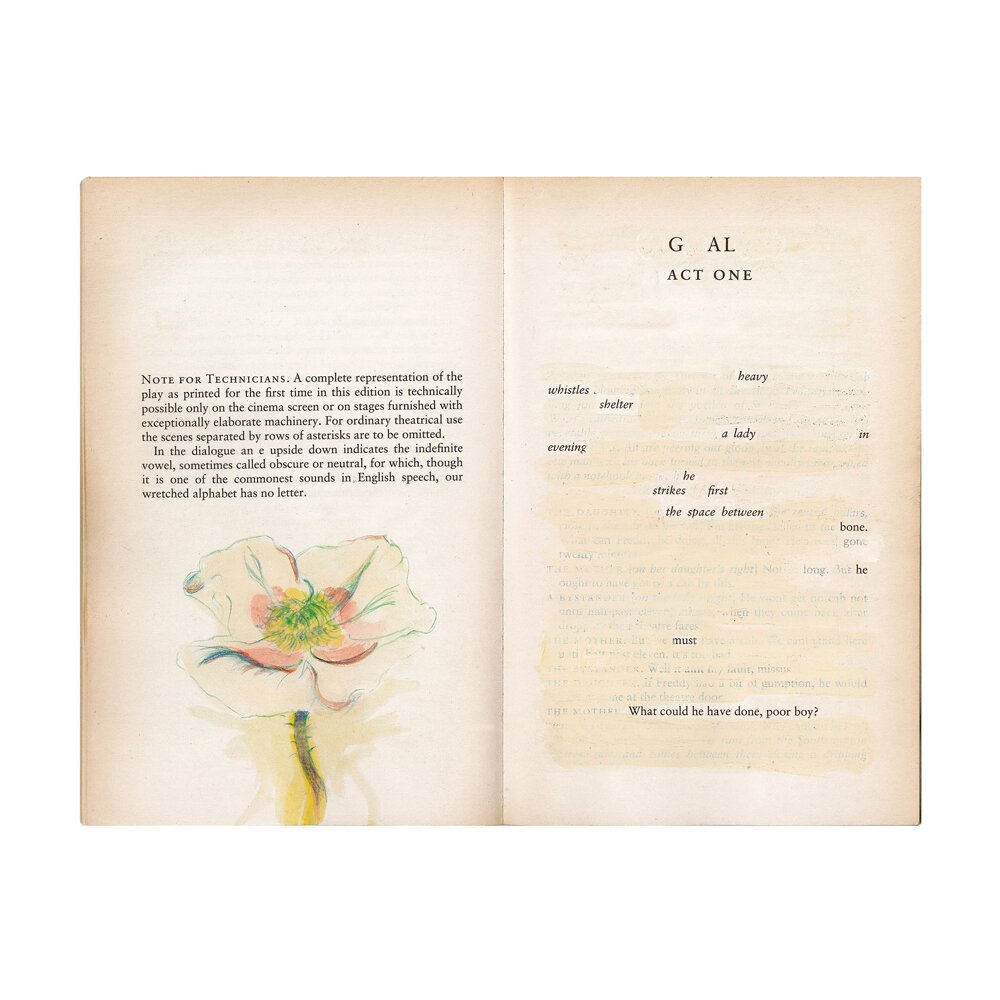 Image 1 of
Image 1 of


Kerri McEvoy
£0.00
"When we've liberated ourselves we will have to ask who we are." - Women Talking, Sarah Polley, screenwriter.
Kerri McEvoy's practice has taken the shape of a personal examination. She is perhaps attempting to deconstruct and assess her own experiences and create connections to dismantle and dispel feelings of shame.
McEvoy collects objects and engages with processes of erasure. Objects have the potential to evoke thought and emotion, to forge connections. She finds herself thinking through collecting and creating a bricolage of sorts, the construction of a fictional setting embedded with material that once accompanied previous lives. She has predominantly collected objects familiar to her in her formative years, while questioning decisions she has made personally and more broadly, societal conditioning. Collecting artefacts more familiar to previous generations of women has evoked thoughts on indoctrination and subsequent transgenerational trauma.
Thinking on how process reveals experience, she has used modes of erasure in response to her thoughts on violence, specifically violence against women and domestic violence. Erasure has involved sanding her own image; a passport photo, etching the same image until the plate becomes paper thin, redacting legal documents and painting over a script. The inclusion of materials removed and traces of what once was may invite thoughts on reduction, transformation and remains.
McEvoy is seeking to engage with understandings of girlhood and womanhood. She questions the culture of silence surrounding this shared female experience, the circularity of violence and shame. What happens when we decline to conform to societal expectations? When we are liberated to ask ourselves who we are.
Quantity:
Add To Cart
"When we've liberated ourselves we will have to ask who we are." - Women Talking, Sarah Polley, screenwriter.
Kerri McEvoy's practice has taken the shape of a personal examination. She is perhaps attempting to deconstruct and assess her own experiences and create connections to dismantle and dispel feelings of shame.
McEvoy collects objects and engages with processes of erasure. Objects have the potential to evoke thought and emotion, to forge connections. She finds herself thinking through collecting and creating a bricolage of sorts, the construction of a fictional setting embedded with material that once accompanied previous lives. She has predominantly collected objects familiar to her in her formative years, while questioning decisions she has made personally and more broadly, societal conditioning. Collecting artefacts more familiar to previous generations of women has evoked thoughts on indoctrination and subsequent transgenerational trauma.
Thinking on how process reveals experience, she has used modes of erasure in response to her thoughts on violence, specifically violence against women and domestic violence. Erasure has involved sanding her own image; a passport photo, etching the same image until the plate becomes paper thin, redacting legal documents and painting over a script. The inclusion of materials removed and traces of what once was may invite thoughts on reduction, transformation and remains.
McEvoy is seeking to engage with understandings of girlhood and womanhood. She questions the culture of silence surrounding this shared female experience, the circularity of violence and shame. What happens when we decline to conform to societal expectations? When we are liberated to ask ourselves who we are.
"When we've liberated ourselves we will have to ask who we are." - Women Talking, Sarah Polley, screenwriter.
Kerri McEvoy's practice has taken the shape of a personal examination. She is perhaps attempting to deconstruct and assess her own experiences and create connections to dismantle and dispel feelings of shame.
McEvoy collects objects and engages with processes of erasure. Objects have the potential to evoke thought and emotion, to forge connections. She finds herself thinking through collecting and creating a bricolage of sorts, the construction of a fictional setting embedded with material that once accompanied previous lives. She has predominantly collected objects familiar to her in her formative years, while questioning decisions she has made personally and more broadly, societal conditioning. Collecting artefacts more familiar to previous generations of women has evoked thoughts on indoctrination and subsequent transgenerational trauma.
Thinking on how process reveals experience, she has used modes of erasure in response to her thoughts on violence, specifically violence against women and domestic violence. Erasure has involved sanding her own image; a passport photo, etching the same image until the plate becomes paper thin, redacting legal documents and painting over a script. The inclusion of materials removed and traces of what once was may invite thoughts on reduction, transformation and remains.
McEvoy is seeking to engage with understandings of girlhood and womanhood. She questions the culture of silence surrounding this shared female experience, the circularity of violence and shame. What happens when we decline to conform to societal expectations? When we are liberated to ask ourselves who we are.





